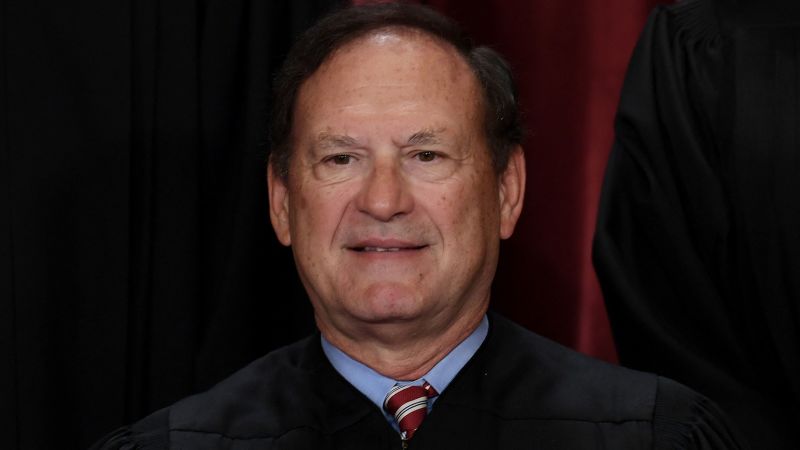Justice Samuel Alito faced criticism after an upside-down American flag was flown outside his home following the January 6, 2021, attack on the US Capitol, with calls for Congress to impose ethics standards on the Supreme Court. Alito stated he had no involvement in the flag being hung and that it was briefly placed there by his wife. Critics questioned this explanation, especially since the Supreme Court is hearing cases related to the aftermath of the 2020 election, with the upside-down flag being a symbol for former President Donald Trump’s supporters who claimed election fraud.
Following revelations about travel accepted by Alito and Justice Clarence Thomas, the Supreme Court adopted a code of conduct for the first time last fall. Judicial ethics experts speculated that the incident with Alito regarding the upside-down flag could violate the code’s provision against political activity. However, the code is self-enforced, and it was ultimately up to Alito to decide whether to disqualify himself from cases related to the 2020 election challenges. Chief Justice John Roberts adopted the code to avoid Congressional efforts to impose an ethics code on the high court.
Senators Sheldon Whitehouse and Dick Durbin, Democrats on the Senate Judiciary Committee, called for ethics reform for the high court in response to the flag incident. Whitehouse suggested that the far-right justices should be subject to an enforceable ethics code due to previous problematic behavior. Durbin stated that Alito’s display of an upside-down American flag creates an appearance of bias and called for his immediate recusal from cases related to the 2020 election and the Capitol insurrection. Republicans initially had a more muted response to the criticism, with Senator Tom Cotton blaming the media for attempting to incite intimidation and harassment of the justices.
The news of the flag incident comes at a crucial time in the Supreme Court term, with the justices working to finish opinions before the end of June. The court’s public support has dwindled since the 2022 overturning of Roe v. Wade, and there are signs that controversial cases and ethics scandals have strained internal relationships. Justice Clarence Thomas recently lamented a loss of collegiality on the court and highlighted tensions among the justices. The court is currently considering two major cases related to the 2020 election and the Capitol attack, including Trump’s claim of absolute immunity from election subversion charges and a January 6 rioter challenging an obstruction charge.
Overall, the incident with the upside-down flag outside Justice Alito’s home has reignited calls for ethics reform within the Supreme Court. The self-enforced code of conduct adopted by the court last fall has raised questions about its effectiveness in addressing judicial ethics issues. Senators from both parties have expressed concerns about the appearance of bias and the need for justices to recuse themselves from cases related to their actions. The ongoing controversies surrounding the court’s handling of high-profile cases and internal relationships highlight the need for transparency and accountability in the nation’s highest court.


